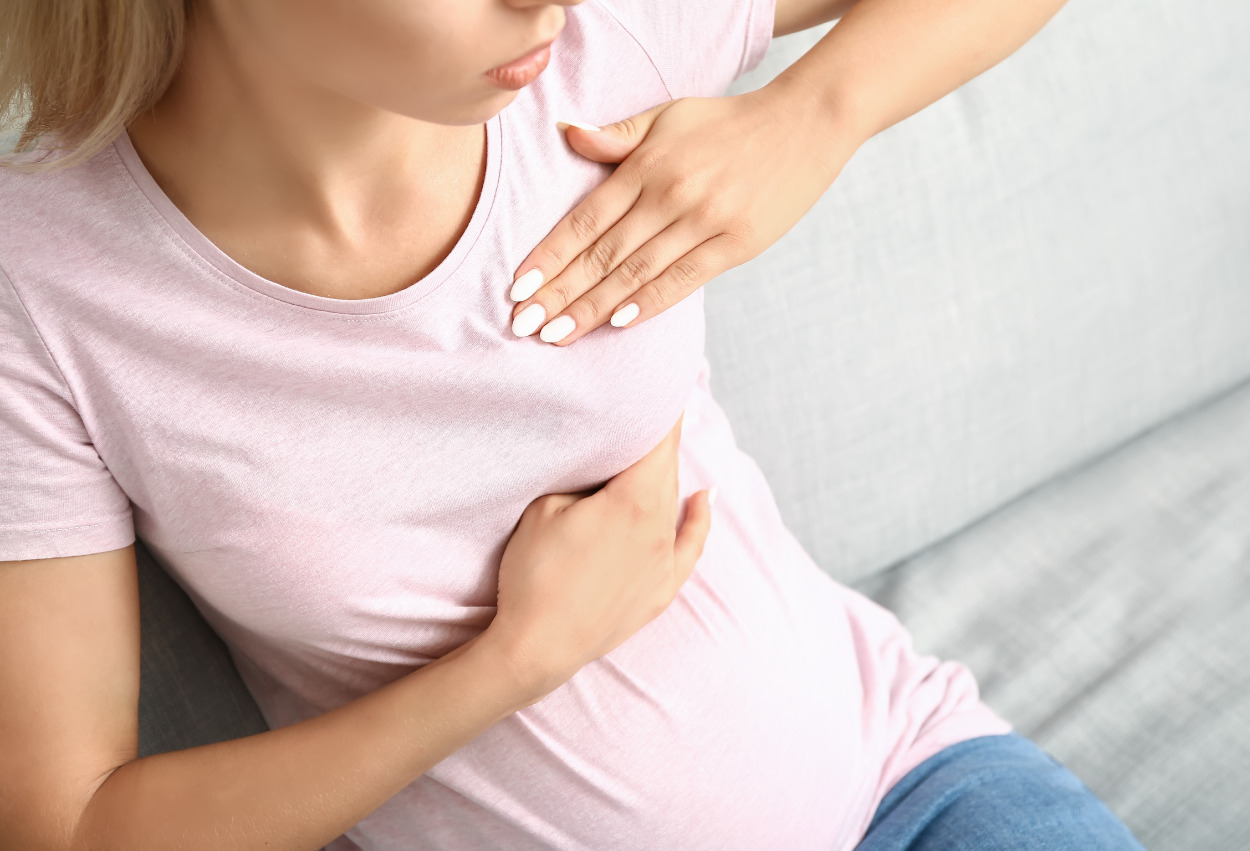Do you know when your last menstrual period began or how long it lasted? If not, it might be time to start paying attention.
Occasionally having irregular periods is fairly common. But if someone often has very long or short menstrual cycles, cycles that change from month to month, or missed periods, this can stem from an underlying health issue.
What does it mean when your menstrual cycle is irregular?
Your menstrual cycle is counted from the first day of your last period to the start of your next period. Your period is considered irregular if it’s longer than 38 days or if the duration varies. Irregular periods can have several causes, from hormonal imbalances to other underlying conditions, and should be evaluated by the doctor.
What causes menstrual irregularities?
PolyCystic Ovarian Syndrome (PCOS)
PCOS is a set of symptoms related to a hormonal imbalance that can affect women and girls of reproductive age. Women with PCOS/PCOD usually have at least two of the following three conditions:
- Absence of ovulation, leading to irregular menstrual periods or no periods at all
- High levels of androgens (a type of hormone) or signs of high androgens, such as having excess body or facial hair
- Cysts (fluid-filled sacs) on one or both ovaries—"polycystic" literally means "having many cysts"
Some women diagnosed with Polycystic ovarian syndrome have the first two conditions listed above as well as other symptoms of PCOS but do not have cysts on their ovaries.
Uterine Fibroid
Uterine fibroids, or leiomyomas, are tumors or growths made of smooth muscle cells, fibroblasts, and other material that grow in or on the wall of the uterus or womb. They are the most common non-cancerous tumors in women of childbearing age.
Perimenopause- Generally in the late 40s and early 50s
Menopause refers to the time in a woman’s life when she stops having a menstrual period and is no longer fertile. The time leading up to menopause is called the menopausal transition, or perimenopause.
During perimenopause, a woman’s ovaries start to produce less estrogen and progesterone. Changes in these hormones cause symptoms of menopause. Periods occur less often and eventually stop. Although this typically is a gradual process that happens over time, in some cases, a woman’s periods will stop suddenly. Throughout perimenopause, ovulation—the release of eggs from the ovaries—also occurs less and less frequently
Thyroid dysfunction
Too much or too little thyroid hormone can make your periods very light, heavy, or irregular. Thyroid disease also can cause your periods to stop for several months or longer, a condition called amenorrhea. If your body’s immune system causes thyroid disease, other glands, including your ovaries, may be involved.
Endometriosis
If you have endometriosis, you may experience irregular menstrual periods or bleeding between periods. Bleeding may be light, which is also referred to as “spotting.” However, bleeding could be heavy and look like a menstrual period even when it’s not that time of the month.
Excessive physical activity
Exercising too much can cause missed menstrual periods or make your periods stop entirely. Irregular or missed periods are more common in athletes and other women who train hard regularly. But if you haven’t worked out in a long time and suddenly start a vigorous fitness routine, your period could stop or become irregular.
PolyCystic Ovarian Syndrome (PCOS) and menstrual irregularities
Androgens are normally produced by the ovaries and the adrenal glands. Examples of androgens include testosterone, androstenedione, dehydroepiandrosterone (DHEA), and DHEA sulfate (DHEAS). Androgens may become increased in women with PCOS because of the high levels of LH but also because of increased levels of insulin that are usually seen with PCOS.
- High levels of circulating androgens, such as testosterone, interfere with the menstrual cycle and can prevent ovulation.
- Because of the hormonal imbalance of PCOS, the follicle doesn’t mature or get released.
- Instead of being released, the follicle (often miscalled a cyst) stays in the ovaries, where it can be seen on an ultrasound.
- Without ovulation and the hormonal events that lead up to it, the uterus does not have the stimulation it needs to shed its lining (have a regular period).
This effect can produce different symptoms . Some people who have PCOS can have regular periods every 28 days, others have periods every 30 to 40 days, and still, others don’t have periods at all.
While menstrual irregularity is a normal symptom of PCOS, it needs to be treated, especially if you are getting fewer than eight or nine periods each year.
Not having a regular period can affect your fertility, and can also increase your risk of developing endometrial cancer.
What can we do ?
To combat PCOS is quite tough because it’s a lifestyle disorder but that doesn’t make it impossible to combat it. What we can do is manage the symptoms of PCOS – along with menstrual dysfunction PCOS has a series of other symptoms like facial hairs, hairloss, acne. Addressing the symptoms and understanding the root cause helps to combat the disorder in a better way.
But How ?
That’s where CysterCare steps in, the hormonal imbalance can occur because of various factors starting from nutrition to stress.
To address every symptom and its triggering factors is important in the management of PCOS. CysterCare helps you understand the process, encounter possible causes for the hormonal imbalance and provide beneficial ways to effectively manage PCOS in a long shot.
References
- https://pubmed.ncbi.nlm.nih.gov/32500628/
- https://www.ncbi.nlm.nih.gov/books/NBK560575/#
- https://www.ncbi.nlm.nih.gov/books/NBK279054/
- Harris HR, Titus LJ, Cramer DW, Terry KL. Long and irregular menstrual cycles, polycystic ovary syndrome, and ovarian cancer risk in a population-based case-control study. Int J Cancer. 2017;140(2):285–291. doi:10.1002/ijc.3044
- https://www.nichd.nih.gov/health/topics/pcos
Frequently Asked Questions
An irregular menstrual cycle is one that is longer than 38 days or varies in duration from month to month. It can also include missed periods or cycles that change significantly.
Irregular periods can be caused by various factors, including hormonal imbalances, PCOS (PolyCystic Ovarian Syndrome), uterine fibroids, perimenopause, thyroid dysfunction, endometriosis, and excessive physical activity.
PCOS can lead to irregular periods due to hormonal imbalances, particularly increased androgen levels that interfere with ovulation and prevent the shedding of the uterine lining.
Managing PCOS-related irregular periods involves addressing the hormonal imbalance through lifestyle changes, proper nutrition, stress management, and seeking medical guidance and support.
Yes, irregular periods can affect fertility as they may indicate a lack of ovulation. It is important to address the irregularity, as untreated PCOS can increase the risk of health issues, such as endometrial cancer.
Related Blogs
- How to prevent Prediabetes from Turning into DiabetesSeptember 19, 2023
- Unravelling the connection: insulin Resistance and PCOSSeptember 8, 2023





